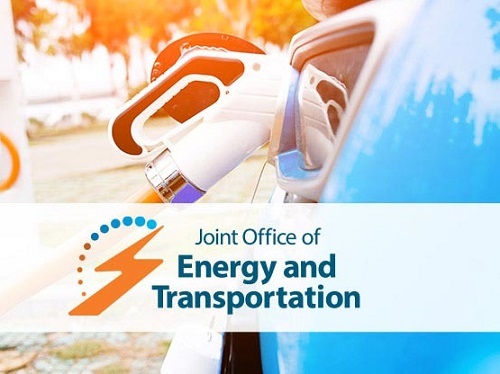The Joint Office of Energy and Transportation or JOET – jointly operated by the U.S. Department of Transportation and U.S. Department of Energy – has issued $46.5 million in grants to 30 projects across 16 states and Washington, D.C, to help develop electric vehicle or EV infrastructure in rural, urban, and tribal communities as well as expand what it calls the “clean energy” workforce.
[Above image via the JOET]
The JOET added that this funding will also address barriers to charging in multifamily housing facilities, explore new approaches to curbside charging in urban areas, promote seamless connections across modes through e-mobility hubs, and test new incentive structures to provide affordable public charging access.
“[We are] proud to fund these game-changing clean transportation projects in communities across the country,” said Gabe Klein, the JOET’s executive director, in a statement.
“These investments ensure we can meet unique local needs, create good-paying jobs, innovate new business models, test products thoroughly, and work towards our goal of making it easy for everyone to ride and drive electric,” he added.
The JOET has also helped developed a variety of resources to help support the expansion of EV infrastructure across the country.
For example, in conjunction with the USDOT, the JOET helped issue a technical resource in July 2023 designed to aid larger communities take full advantage of federal funding for electric vehicle charging stations and other forms of electric transportation.
That guide – called “Charging Forward: A Toolkit for Planning and Funding Urban Electric Mobility Infrastructure” – provides a comprehensive resource for communities, metropolitan planning organizations, transportation providers, businesses, and property owners and developers by including information on how to scope, plan, and identify ways to best leverage billions of dollars in funding from the Infrastructure Investment and Jobs Act or IIJA.
It follows on the heels of the Rural EV toolkit originally issued by the USDOT in 2022 and later updated in 2023.
The toolkit builds on the efforts of the Joint Office to provide states and communities across America with information and assistance to accelerate an electrified transportation system that is convenient, affordable, reliable, and equitable. It also includes guidance to help urban areas implement other forms of electric transportation, such as public transit, electric bikes and scooters, and ride-share services, USDOT said.

